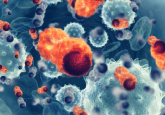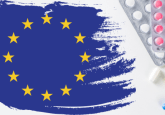Harnessing real-world data insights to advance bladder cancer treatment

The complex landscape of cancer treatment demands a nuanced understanding of how clinical trial data translates into real-world clinical decisions. This challenge is particularly relevant in bladder cancer, a disease marked by significant heterogeneity. By exploring the role of real-world data (RWD), clinicians can better navigate its complexities, unlocking new opportunities for patient-centered outcomes and innovative treatment approaches.
In this Guest Column, Dr Solomon Kamal-Uddin (Strategic Medical Director, BC Platforms, UK), Dr Manuel Castanheira de Oliveira (Urologist, Centro Hospitalar De Santo António, Portugal), Dr Albert Carrión (Urologist, University of Vall Hebron, Spain) and Dr Giuseppe Banna (Consultant Medical Oncologist, Portsmouth Hospitals University NHS Trust, UK) explore the evolving role of RWD in deriving actionable insights for personalized treatment strategies, bridging the gap between clinical trial data and real-world clinical practice.
This column is based on the white paper “Leveraging Real-World Data for the Targeted Treatment of Cancer: A Focus on Bladder Cancer — A Highly Heterogeneous Disease.”
The changing face of bladder cancer and its treatment
Bladder cancer poses a significant challenge for clinicians due to its high degree of heterogeneity and the considerable unmet needs and patient burden it presents. It was the fourth leading cause of cancer in men in 2023, accounting for 4% of global cancer-related deaths. Bladder cancer is predominant in men, constituting over three-quarters of cases, although incidence is rising in women. Most patients (70-75%) have non-muscle-invasive bladder cancer (NMIBC), while 20-25% have muscle-invasive bladder cancer (MIBC), and 5% present with metastatic disease. About 90% of cases are urothelial cell carcinoma, with the remainder being squamous cell carcinoma, adenocarcinoma, or neuroendocrine carcinoma.
The diverse patient profile, combined with the disease’s heterogeneity and the presence of conditions like frailty and unknown genetic factors, mean that up to 50% of patients with metastatic disease are unable to receive standard cisplatin-based chemotherapy. Interventions, whether pharmacological or surgical, can severely impact the patient’s quality of life. This complexity underscores the need for a personalized approach to treatment.
The emergence of immunotherapy has provided the first new treatment for metastatic bladder cancer in over 45 years. Clinical trials have shown the combination of enfortumab vedotin (Padcev) and the immunotherapy drug pembrolizumab (Keytruda) provides significantly improved survival in people with metastatic bladder cancer compared with standard chemotherapy. However, more treatments are needed to provide real-world options that can address the diverse needs of bladder cancer patients, especially those who are unable to tolerate standard therapies.
Overcoming the challenges in clinical trials with RWD
Clinical trials raise concerns about whether their findings truly represent real-world patients. In bladder cancer, several issues arise: restrictive eligibility often limits enrollment to about 30% of potential candidates; small patient cohorts can make trials unfeasible in some regions; and inadequate data tracking hinders outcome analysis. Additionally, comparing treatments is challenging due to variations in bladder preservation preferences and significant differences in adverse effects and quality of life.
“Given these issues, which also affect other cancer types, RWD can complement trial data in answering some of these important questions.”
The US FDA defines RWD as “data relating to patient health status and/or the delivery of health care routinely collected from a variety of sources,” such as electronic health records, medical claims, and product or disease registries. RWD can contextualize and complement clinical trial data by providing a more accurate reflection of the patient population, expanding sample sizes, and enabling longer follow-up periods.
Industry can leverage the insights from RWD to drive innovation in drug development, optimize clinical trial designs, and refine treatment strategies. Clinicians look to RWD to enhance their understanding of treatment effectiveness in diverse, real-world settings, allowing for more informed decision-making. Regulators and decision-makers are also increasingly recognizing the value of RWD as they seek practical and pragmatic solutions to meet evidence needs.
Fostering trust in RWD with the right partner
To be effective, RWD requires access to high-quality patient data from various regions and the harmonization of that data. For RWD to be considered ‘fit for purpose’, it must be sufficiently powered and of high quality, necessitating large patient numbers from diverse geographic areas to accurately reflect regional differences.
As a leader in leveraging RWD for cancer research, BC Platforms harmonizes data from an extensive hospital Global Data Partner Network of more than 90 data partners, offering data platform solutions for the management, integration, analysis and sharing of global multimodal data that can be used in robust statistical analyses. The company’s expertise in federated analysis data and secure data environments also enables trusted, transparent access to this crucial patient data.
Looking ahead, as the volume of RWD from multi-country, multi-modal, deep patient-level data cohorts grows, analysis of such data will require the development of predictive AI models. Harmonized, high-quality datasets, such as those provided by BC Platforms, will serve as the prerequisite in creating these advanced tools, enabling more precise and personalized approaches to bladder cancer treatment and ultimately improving patient outcomes.
Authors

Solomon Kamal-Uddin
Strategic Medical Director, BC Platforms, UK
Dr Solomon Kamal-Uddin’s role at BC Platforms is to support RWD to address drug development and healthcare hurdles. He has senior cross-sector experience in healthcare, education, clinical trials, industry and patient organizations, and has served as the principal investigator for several national clinical trials and contributed to international Delphi studies.

Manuel Castanheira de Oliveira
Urologist, Centro Hospitalar De Santo António, Portugal
Dr Manuel Castanheira de Oliveira is a consultant urologist at the Centro Hospitalar de Santo António in Porto and is the coordinator of the Urothelial Oncology Unit of the Urology Department.

Albert Carrión
Urologist, University of Vall Hebron, Spain
Dr Albert Carrión is a consultant urologist at the Urology and Kidney Transplantation Department of the University Hospital of Vall Hebron and serves as a panel member of the European Association of Urology Guidelines (expert in bladder cancer, muscle-invasive panel).

Giuseppe Banna
Consultant Medical Oncologist, Portsmouth Hospitals University NHS Trust, UK
Dr Giuseppe Banna is a consultant medical oncologist for lung and urology tumors at the Department of Oncology of Portsmouth Hospitals University NHS Trust and honorary associate professor at the Faculty of Science and Health, School of Pharmacy and Biomedical Sciences, University of Portsmouth, UK.
Acknowledgments
Writing assistance, provided by Jo Walker of The Evidence Base, was used in an earlier version of this column.
Sponsorship for this Guest Column was provided by BC Platforms.







